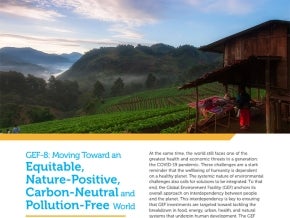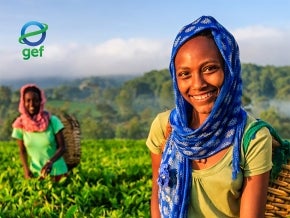Image
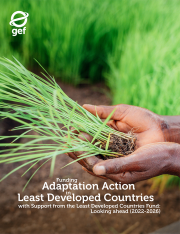
Funding Adaptation Action in Least Developed Countries with Support from the LDCF
The GEF’s adaptation support for Least Developed Countries (LDCs) is delivered through the Least Developed Countries Fund (LDCF). The LDCF is the only multilateral fund that focuses exclusively on the unique climate adaptation challenges of LDCs and is embraced by LDCs as their own. The fund has a…
Image
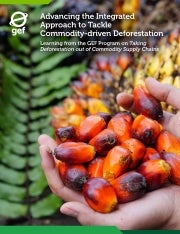
Advancing the Integrated Approach to Tackle Commodity-driven Deforestation
In 2014 the Global Environment Facility launched an ambitious effort to influence a shift in supply chains for beef, soy, and palm oil towards reduced-deforestation production, while delivering continued social and economic development to farmers and their communities. The GEF-6 program, Taking…
Image
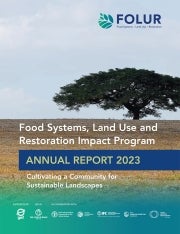
FOLUR Annual Report 2023: Cultivating a Community for Sustainable Landscapes
This annual progress report covers the period from July 1, 2022 to June 30, 2023, providing an update on the Global Environment Facility-supported Food Systems, Land Use and Restoration (FOLUR) Impact Program’s progress and achievements.
The emphasis during this period included strengthening…
Image
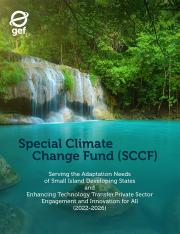
SCCF: Serving the Adaptation Needs of SIDS and Enhancing Technology Transfer, Private Sector Engagement, and Innovation
The Special Climate Change Fund (SCCF), established by the United Nations Framework Convention on Climate Change (UNFCCC) in 2001, is managed by the Global Environment Facility.
Extensive consultations with stakeholders guided development of a new strategy for 2022-2026. The strategy builds on…
Image
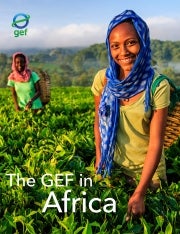
The GEF in Africa
Since its inception in 1991, the Global Environment Facility has steadfastly supported African countries as they seek effective and innovative approaches to a nature-positive economy. The GEF has helped implement more than 1,800 projects in Africa, with a total investment of $6.2 billion. These…
Image
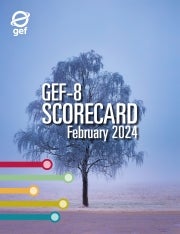
GEF-8 Corporate Scorecard - February 2024
The Corporate Scorecard is a comprehensive report on the performance of the Global Environment Facility during the eighth replenishment (GEF-8) period. In particular, the Scorecard reports on the progress made towards the achievement of the GEF-8 targets. It also looks at how the GEF is utilizing…
Image
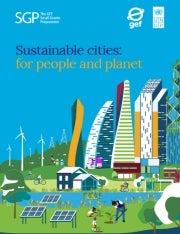
Sustainable Cities: for People and Planet
The rapid transformation of the world through urbanization has been a defining feature of the last century. This shift has elevated cities into economic powerhouses that foster innovation, economic development, and social interactions. However, this has come at a cost: often prioritizing immediate…
Image
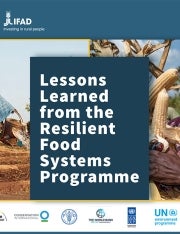
Lessons Learned from the Resilient Food Systems Program
Integrated Approach Pilot (IAP) programs were conceived as part of the Global Environment Facility 2020 Strategy to test the delivery of integrated approaches that address discrete, timebound, complex, global environmental challenges. In its sixth replenishment cycle (GEF-6), three IAPs were funded…
Image

The GEF Small Grants Programme - Results Report 2022-2023
This is the infographic version of the GEF Small Grants Programme (SGP) Results Report 2022-2023. SGP provides financial and technical support to civil society and community-based organizations on innovative community-driven initiatives that address global environmental issues – such as…
Image
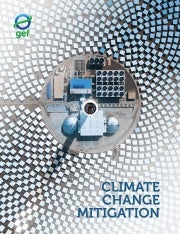
Climate Change Mitigation
Climate change is a growing major threat to human and natural systems on our planet. The world must focus on scaling up climate mitigation action that minimizes trade-offs and maximizes synergies with other government economic and development priorities, including protecting nature and promoting an…
